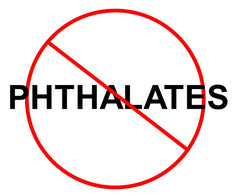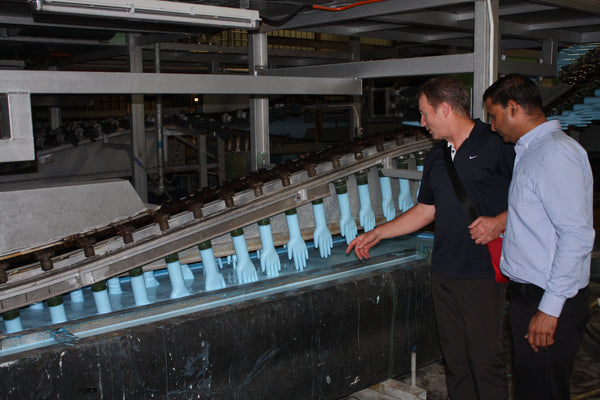I am not a scientist and I am no expert on PVC, plasticizers, or BPA.
But, what I am expert on is our gloves… I am involved everyday with the sourcing, manufacturer and distribution of gloves to some very large (and small) food processing facilities. They rely on us to get it right for them and keep their staff, product, customers and reputation safe.
I have been helping them stay safe for over 15 years.
The organic, natural and specialty foods industries in the US are growing fast and in some cases attracting large investment. It is important that the original goals in providing nutritious, safe and transparent products to your customers is not lost in this race for growth.
Many of our customers and potential customers use words like these…
- No antibiotics
- No preservatives
- GMO free
- Organic ingredients
- No growth hormones
- No high fructose corn syrup
- No artificial colors or sweeteners
You know so much about your food product - what about what is touching it?
It has been concerning to see the number of food processing and foodservice businesses that use PVC or vinyl gloves. There can be some serious risk with these gloves:
- They are permeable under normal operating stress and can allow bacteria and virus to pass through micro tears created on donning or use. (Contact me for scientific papers and studies on this.)
- They may contain BPA - especially if they seem remarkably cheap!
- They will very likely contain some variation of phthalates - some of which are noted in California Proposition 65 - e.g. DBP, BBP, DINP, DnHP and DEHP.*
- These compounds are mostly soluble in fat and are not bound to the glove molecule - so migrate onto the food quite easily

My challenge to you is - if you are not prepared to drink from a plastic bottle containing BPA then don’t allow your food product to be handled by vinyl gloves.
There is of course plenty of literature that defends the use of phthalates and BPA, claiming they are not harmful in the levels that could be leached from a PE bottle or a PVC glove for example. But… most of us are still pretty nervous about this.
I am happy to discuss this with you, your co-packer or glove supplier and advise (without obligation to buy Eagle gloves) on what I think the best options are for your particular facility.
Even if you don’t use vinyl gloves - do you really know who manufactures your gloves and what the factory is like? I have spent years visiting factories throughout Asia and I could tell you some stories! If transparency is an important value in your business, you need to know.

Notes:
- If deemed necessary we stock and recommend vinyl gloves only for intermittent or no direct food contact and no contact at all with fatty or oily foods. Eagle gloves are tested and fully pass the California Proposition 65 requirements.
- *Phthalates and BPA are chemical compounds that appear in solvents, plasticizers and common household products. See here for more information, or google phthalates.
To learn more about food safety disposables and how you can better protect your customers, employees and business from food contamination, request a call with an Eagle Protect expert today.


